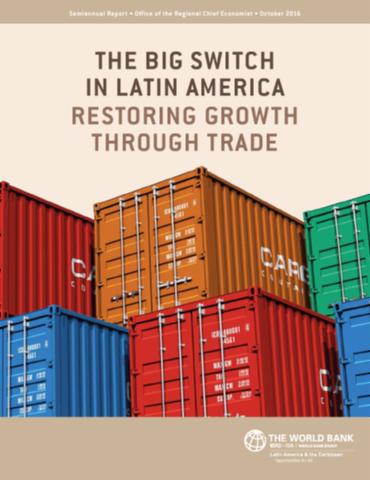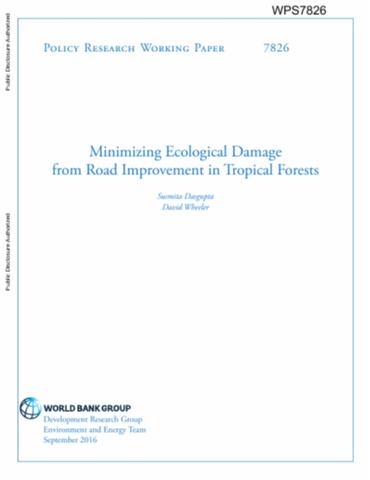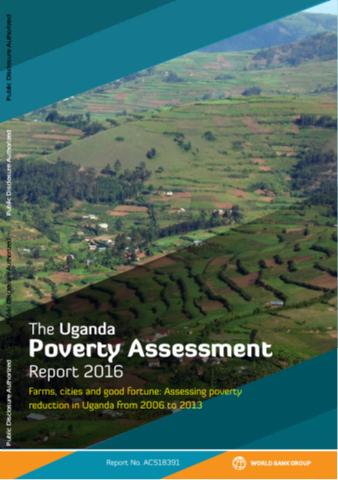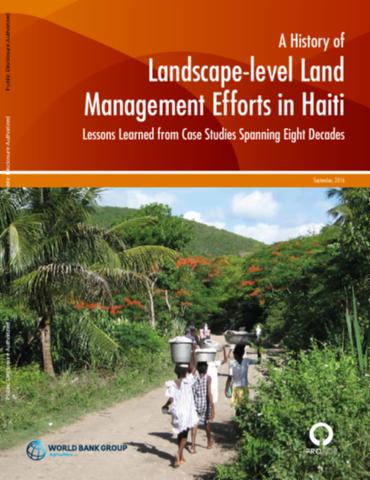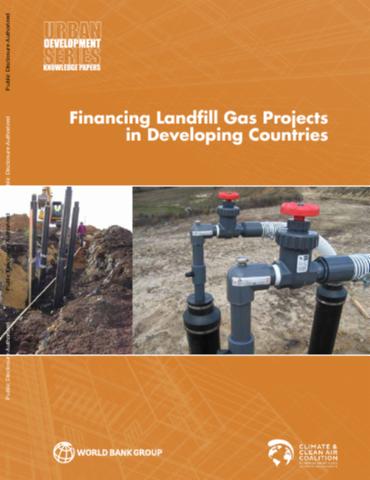The World Bank is a vital source of financial and technical assistance to developing countries around the world. We are not a bank in the ordinary sense but a unique partnership to reduce poverty and support development. The World Bank Group has two ambitious goals: End extreme poverty within a generation and boost shared prosperity.
- To end extreme poverty, the Bank's goal is to decrease the percentage of people living on less than $1.25 a day to no more than 3% by 2030.
- To promote shared prosperity, the goal is to promote income growth of the bottom 40% of the population in each country.
The World Bank Group comprises five institutions managed by their member countries.
The World Bank Group and Land: Working to protect the rights of existing land users and to help secure benefits for smallholder farmers
The World Bank (IBRD and IDA) interacts primarily with governments to increase agricultural productivity, strengthen land tenure policies and improve land governance. More than 90% of the World Bank’s agriculture portfolio focuses on the productivity and access to markets by small holder farmers. Ten percent of our projects focus on the governance of land tenure.
Similarly, investments by the International Finance Corporation (IFC), the World Bank Group’s private sector arm, including those in larger scale enterprises, overwhelmingly support smallholder farmers through improved access to finance, inputs and markets, and as direct suppliers. IFC invests in environmentally and socially sustainable private enterprises in all parts of the value chain (inputs such as irrigation and fertilizers, primary production, processing, transport and storage, traders, and risk management facilities including weather/crop insurance, warehouse financing, etc
For more information, visit the World Bank Group and land and food security (https://www.worldbank.org/en/topic/agriculture/brief/land-and-food-security1
Resources
Displaying 241 - 245 of 4906The Big Switch in Latin America
This report, produced by the Office of the Chief Economist for Latin America and the Caribbean (LAC) of the World Bank, examines LAC’s challenges as the global economy settles to an equilibrium with lower growth and lower commodity prices. Chapter 1 gives an overview of the world economy and how it affects LAC’s short and medium-term prospects. It argues that LAC suffered an external shock that shaped growth in recent years, and that the current global context is likely here to stay.
Minimizing Ecological Damage from Road Improvement in Tropical Forests
A spatial econometric model is used to link road upgrading to forest clearing and biodiversity loss in the moist tropical forests of Bolivia, Cameroon, and Myanmar. Using 250-meter cells, the model estimates the relationship between the rate of forest clearing in a cell and its distance to the urban market, with explicit attention given to road quality and simultaneity, terrain elevation and slope, the agricultural opportunity value of the land, and its legal protection status.
The Uganda Poverty Assessment Report 2016
Uganda’s progress in reducing poverty from 1993 to 2006 is a remarkable story of success that has been well told. The narrative of Uganda’s continued, albeit it slightly slower, progress in reducing poverty since 2006 is less familiar. This was a period in which growth slowed as the gains from reforms years earlier had been fully realized, and weak infrastructure and increasing corruption increasingly constrained private sector competitiveness (World Bank 2015). This report examines Uganda’s progress in reducing poverty, with a specific focus on the period 2006 to 2013.
A History of Landscape-Level Land Management Efforts in Haiti
Section one of this report opens with a brief environmental history of Haiti, followed by an analysis of the current state of environmental conditions, and closes with an examination of contemporary human and landscape vulnerabilities to acute and chronic environmental degradation and extreme climatic events. Section two of the report provides a brief summary of 15 regional or national landscape-level land management projects enacted in Haiti since the middle of the 20th century.
Financing Landfill Gas Projects in Developing Countries
Landfill gas (LFG) management can help mitigate greenhouse gas emissions and contribute to the overall safe operation of a landfill, sometimes simultaneously generating revenue. However, financing these systems can be a challenge, particularly in low-resource settings. Recognizing that landfill emissions are expected to rise into the foreseeable future, this report outlines a variety of ways that city governments, private landfill owners, or other project developers finance LFG management systems that mitigate these emissions.






